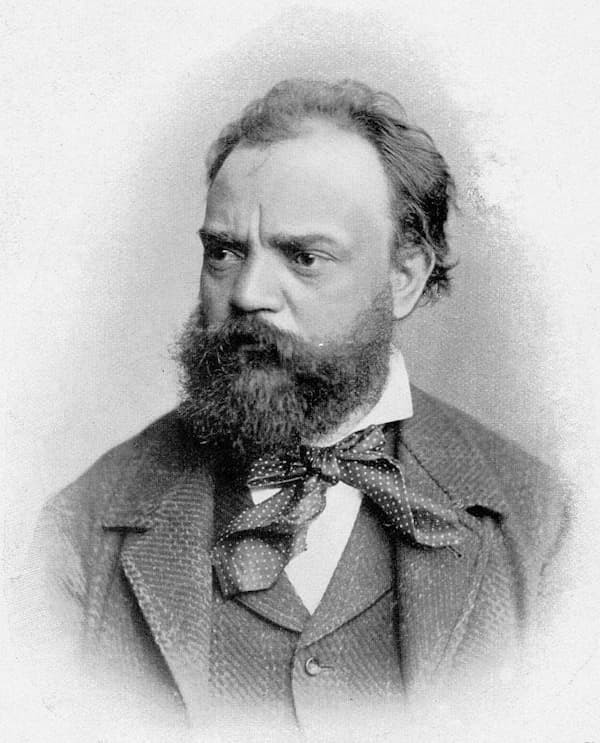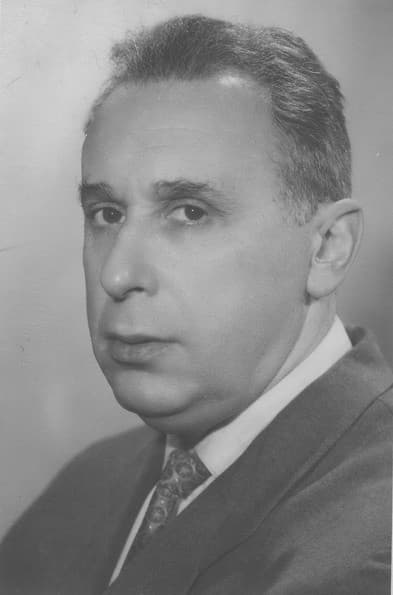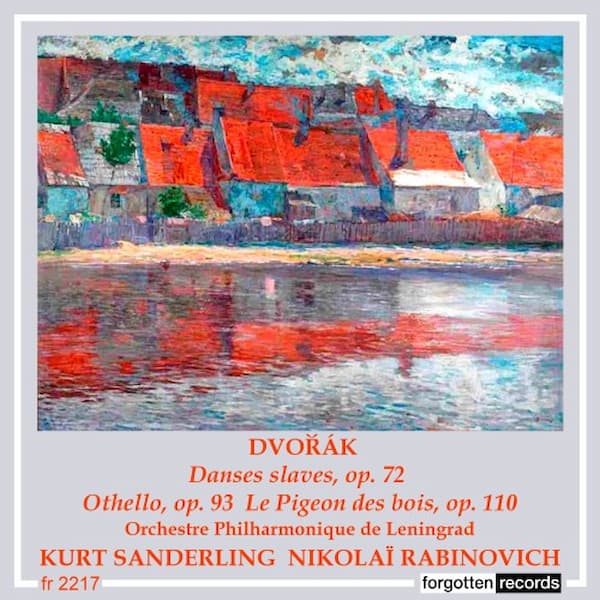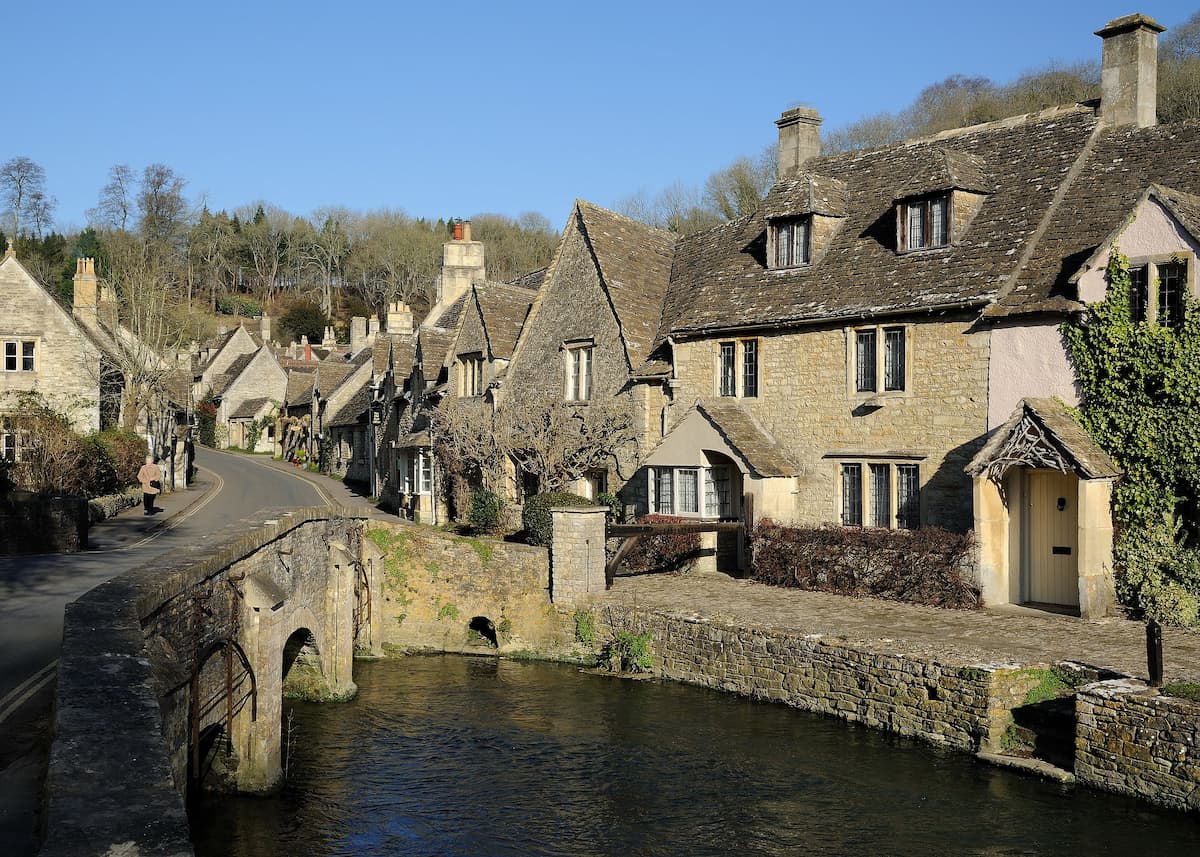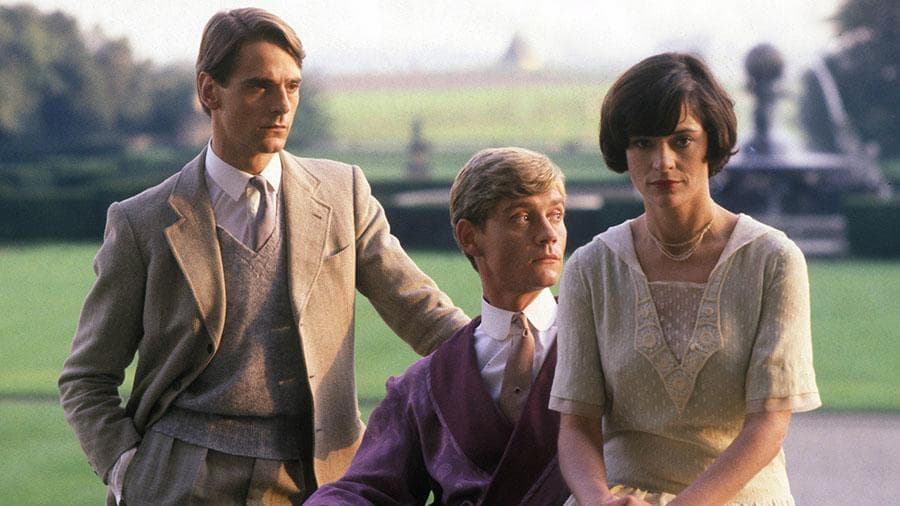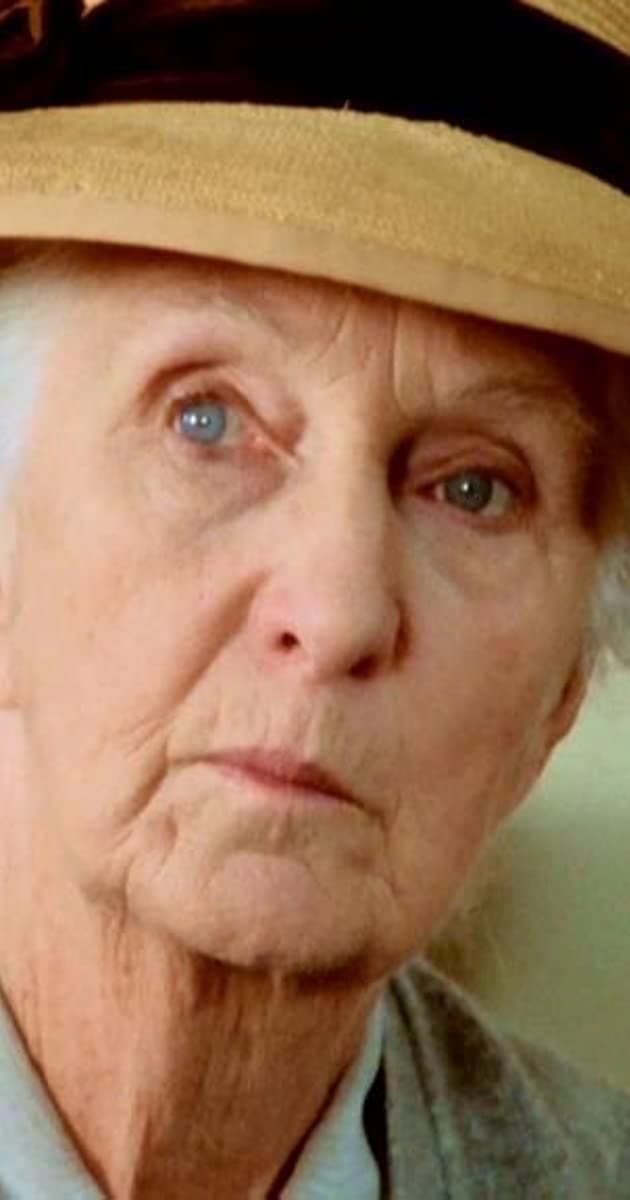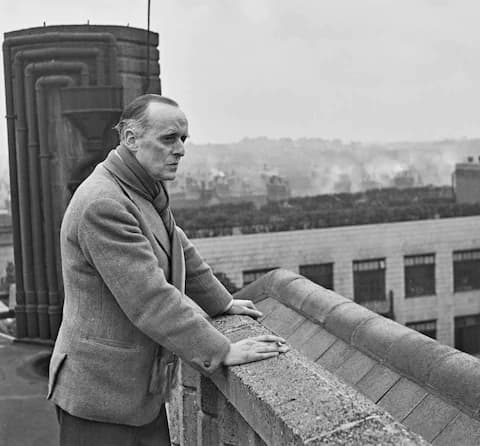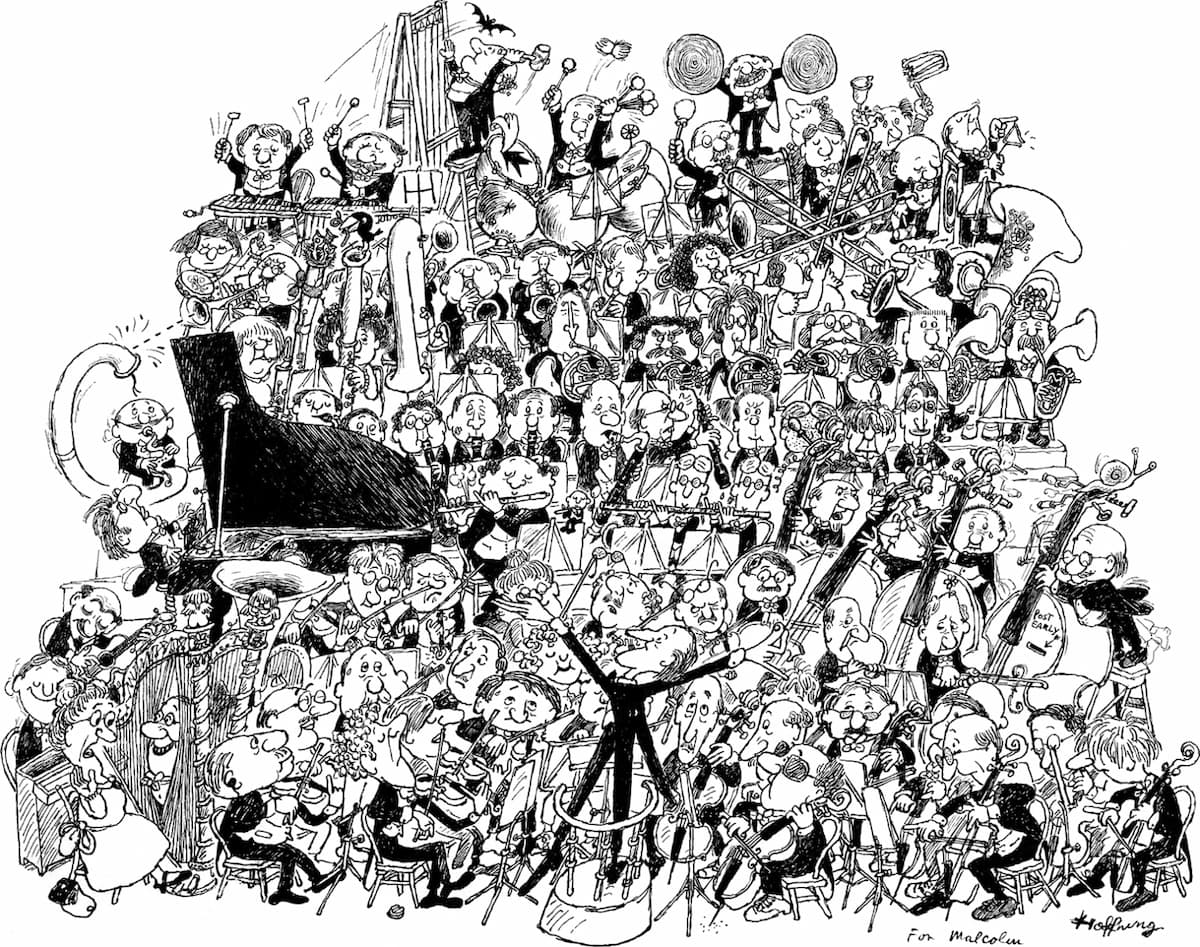A yearning for his homeland and the devastating loss of a beloved friend give the Czech’s work an almost unbearable pathos, explains Jo Talbot

Antonín Dvořák © Getty Images
Jo Talbot
Who was Antonín Dvořák?
In September 1892, the 51-year-old Antonín Dvořák arrived in New York to take up the position of director of the National Conservatory – a move that would not only swell his bank account but also see him fêted as something of a celebrity in his adopted home. On top of his teaching duties, Dvořák also performed and travelled widely, absorbing much of the local culture. His compositions from his period in the US are among his most famous, including his Symphony No. 9 ‘From the New World’, ‘American’ String Quartet No. 12 and, shortly before returning back to his Czech homeland in 1895, his Cello Concerto.
Dvořák Cello Concerto: the work
Discovering the cello's potential
As Robert Hausmann played Dvořák’s Cello Concerto through, Johannes Brahms turned round to the composer and said, ‘If I had known that it was possible to write a cello concerto like this, I would have tried it as well!’ High praise indeed.
Dvořák’s Concerto is indeed an inspired work, but he hadn’t always been so taken with the cello. He considered his youthful First Concerto, written at the age of 23, to be incompetent, and it was almost 30 years later, on hearing Victor Herbert’s Second Cello Concerto in New York, that he realised the instrument’s potential. He studied Herbert’s score and six months later began sketching his own work, completing the first version in February 1895. Returning to Prague in April, he revised his Concerto over the summer and offered it to Simrock, his publisher.
Tragedy and tribute: the death of Dvořák's beloved sister-in-law
This gives us the timeline of the composition, but misses the personal tragedy that defines its creative impetus. While working on the sketches, Dvořák knew that his beloved sister-in-law Josefina was ill. She wrote to him: ‘Forgive me for not writing, but I have been seriously confined to bed, and unable to do so. I have not heard from you for such a long time. This is not as it should be! However, I shall resign myself to the fact I have nothing to look forward to anymore.
With the knowledge that Josefina’s health was failing, Dvořák wanted to pay tribute to her in his new work. He includes in the second movement some quotes from the song ‘Lasst mich allein’ (Leave me alone) which was a favourite of Josefina, and a reference to the three-note ‘Lebewohl’ (Farewell) motif from Beethoven’s Sonata ‘Les adieux’. On learning of Josefina’s death, Dvořák was utterly devastated, adding a Coda in the last movement that quotes the same song – a mesmerisingly tender moment.
Was this an open love letter and farewell? Dvořák’s early passion for Josefina had come to nothing and she married a German-speaking aristocrat – a better match than his position then as a lowly orchestral player. But the two remained close – Dvořák married her younger sister, and his family visited her estate at Vysoká every summer. The passion and intimacy in the music perhaps tells the story best.
Dvořák Cello Concerto: a stormy route to the first performance
The dedicatee of the Cello Concerto, friend and cellist Hanuš Wihan, stepped in with some virtuosic figurations and advice and was originally going to give the premiere in London. But then he and Dvořák had a major rift. The cause? Wihan had decided his own cadenza should be inserted into the Finale, ruining Dvořák’s intricately wrought tribute to Josefina. Dvořák angrily wrote in October 1895 to Simrock: ‘I have some differences of opinion with friend Wihan. I do not like some of the passages – and I must insist on my work being printed as I have written it. I shall only give you my work if you promise not to allow anybody to make changes. There is no cadenza in the last movement. I told Wihan straight away when he showed it to me it was impossible just to stick such a bit on.’
Wihan dropped the work, and the British cellist Leo Stern took over. It had been a vitriolic spat, as Dvořák’s biographer Otakar Šourek elucidated in a letter: ‘He esteemed Josefina not only as a dear friend, but also as the charming young actress who, long years ago, had awakened in him a secret passion.’ Šourek also mentions the songs Dvořák quoted by way of farewell: ‘For this reason, Dvořák insisted on his own definitive conclusions.’
The Concerto meant everything to Dvořák. In a letter to his friend Alois Göbl he admitted his relentless rehearsal of the work in Prague, taxing Leo Stern to his limit: ‘We studied and practised every day – he was quite in despair and I was insisting that it was good, but that it must still be better.’
Dvořák Cello Concerto: the premiere
It served them both well – the premiere, with Dvořák conducting the Philharmonic Society Orchestra in London in March 1896, was warmly received. ‘All three movements are richly melodious,’ wrote The Times, ‘the just balance is maintained between orchestra and solo instrument, and the passages written for display are admirably devised. Mr Stern played the solo part with good taste and faultless technical skill.’ On the Viennese premiere two years later, Eduard Hanslick, critic of Neue Freie Presse, wrote that ‘Dvořák has written a magnificent work which has brought to an end the stagnation of violoncello literature.’
Dvořák Cello Concerto: form and style
While teeming with Romantic gestures, there are also interesting modern elements. It is more of a cello symphony than concerto, the solo part integrated into orchestral dialogues. Textures are multi-layered, with a leaning towards Wagnerian chromaticism, and programmatic elements are suggested – the numerous trills perhaps allude to the bird song from the composer’s notoriously early morning walks at Vysoká. And the march that opens the Finale even foreshadows Gustav Mahler, while the Bohemian inflection in the melodies lends a flavour of nationalism to this towering work.
